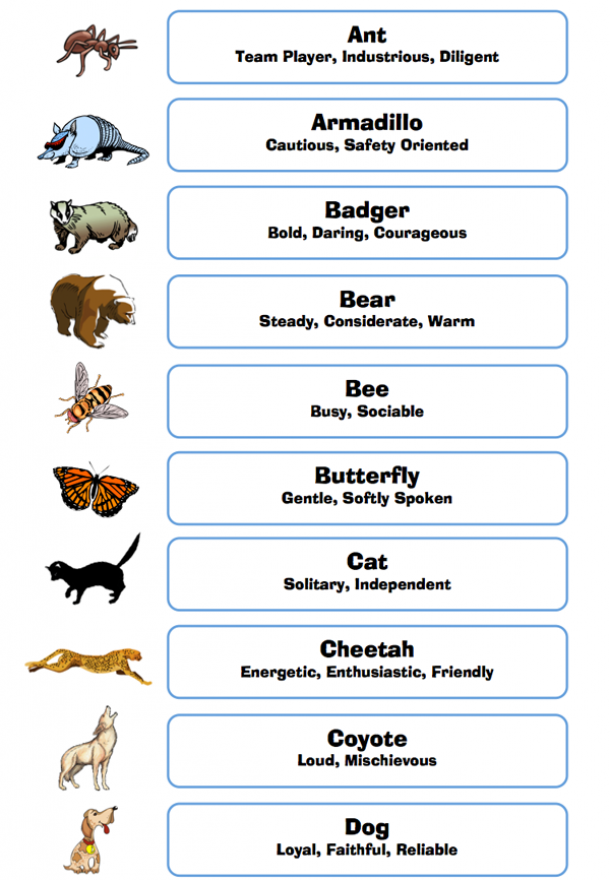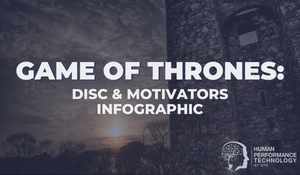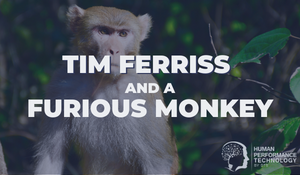The Best Icebreaker for L&D Facilitators (Animal Personalities)
This is one of the most versatile icebreakers for L&D facilitators, which can be used in any kind of workshop, regardless of the actual training topic being delivered. It's called "Animal Personalities" and is guaranteed to get people talking.
The activity helps to get a feel for the different personalities in the group, while getting people talking about something that they usually find extremely interesting — themselves!
This will help set the tone for the training right from the kick off and tell the participants that you are a fun and engaging facilitator who understands the principles of learning. Although there is a tendency for people in the corporate world to present information in standardised-black-size-12-Arial bullet lists, the neuroscience research actually tells us that materials containing vibrant colours and plenty of images are far better for helping people retain the information.
Instructions:
- Display the images of the animals (on a PowerPoint slide or handout).
- Ask people to select 1 animal they are most like, and 1 animal they are least like (2 separate animals).
- Ask them to elaborate a little about their choices. For each animal, ask them to explain their reasons why and which word(s) they feel the strongest toward.
Facilitator Example: “Since this is the first time we’ve met, I’d like to try to understand a little more about each of you. Shortly, I’d like everyone in the group to introduce themselves and as you do I’d like you to give me a few additional pieces of information about yourself. Starting with this list of animals, I’d like you to pick 1 animal that you are MOST like and 1 animal that you are LEAST like in terms of your personality so we have a better sense of what we might expect from you. For example, if you say that you are most like the Coyote, we will know to put duct tape over your mouth and strap you to your chair.”
Participant Example: “Hi, my name is Jill and the animal I am most similar to is the Lion and the animal I am least similar to is the Mouse ... ”

As an Icebreaker for a DISC Session:
Following the same instructions above, this quick activity serves a good transition for introducing the 4-quadrant behavioural framework (DISC).
Example: “As we can see from the mixture of different animals that were chosen by everyone here, we don’t all associate with the same characteristics. As a team, we’re all different and we all like to operate in different ways. Some people like to make time to socialise and chat, while others value their own space and independence. Some people are forthright and assertive; others are more restrained and cautious. Today we’re going to use a framework called DISC to understand some of the common ways in which people prefer to behave and communicate ...”
Related Articles:

Theo Winter
Client Services Manager, Writer & Researcher. Theo is one of the youngest professionals in the world to earn an accreditation in TTI Success Insight's suite of psychometric assessments. For more than a decade, he worked with hundreds of HR, L&D and OD professionals and consultants to improve engagement, performance and emotional intelligence of leaders and their teams. He authored the book "40 Must-Know Business Models for People Leaders."



We Would Like to Hear From You (0 Comments)